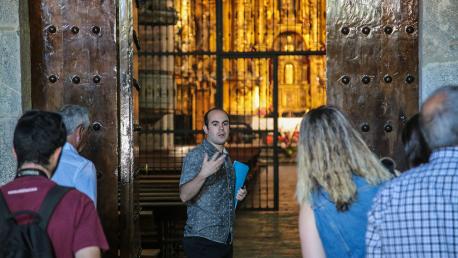Vous êtes ici
San Joan: a festivity related with traditions
17/06/2019 |
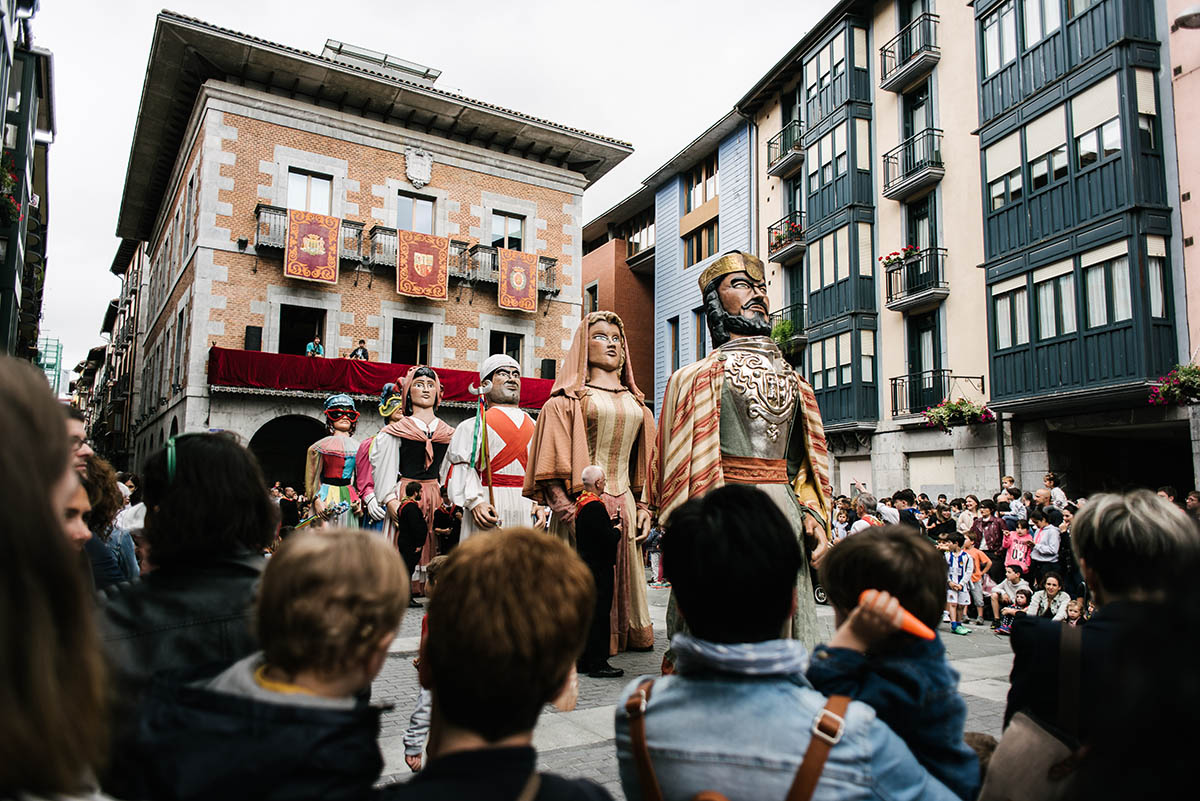
The festivities of San Juan, the patron saint festivities of Tolosa are very beloved by all the people of Tolosa. A mixture between the feeling of the shortest night and summer, melodies that you only hear at this time of year, sparks and bonfires that purify us and give us “good luck”, dances that make your hair stand on end, and lots of gunpowder. Customs that are passed on in family legacies, and moments to enjoy among friends. A cluster of old and new.
The festivities of Tolosa are celebrated alongside the summer solstice and in honour of the town´s patron saint, San Juan, while the first rays of summer liven up the longest days of the year.
On Saturday 22 June, the arrival of this season will be celebrated in Tolosa with a concert in a magical setting; instruments placed among beech trees in the Iraolako Zuloa wood in the Urkizu District, played by the Et Incarnatus orchestra conducted by Migel Zeberio. Melodies, singing and mysticism. This year it will take place on Saturday 22 at 12.30, and honestly, it is worthwhile walking there and discovering the setting on foot.
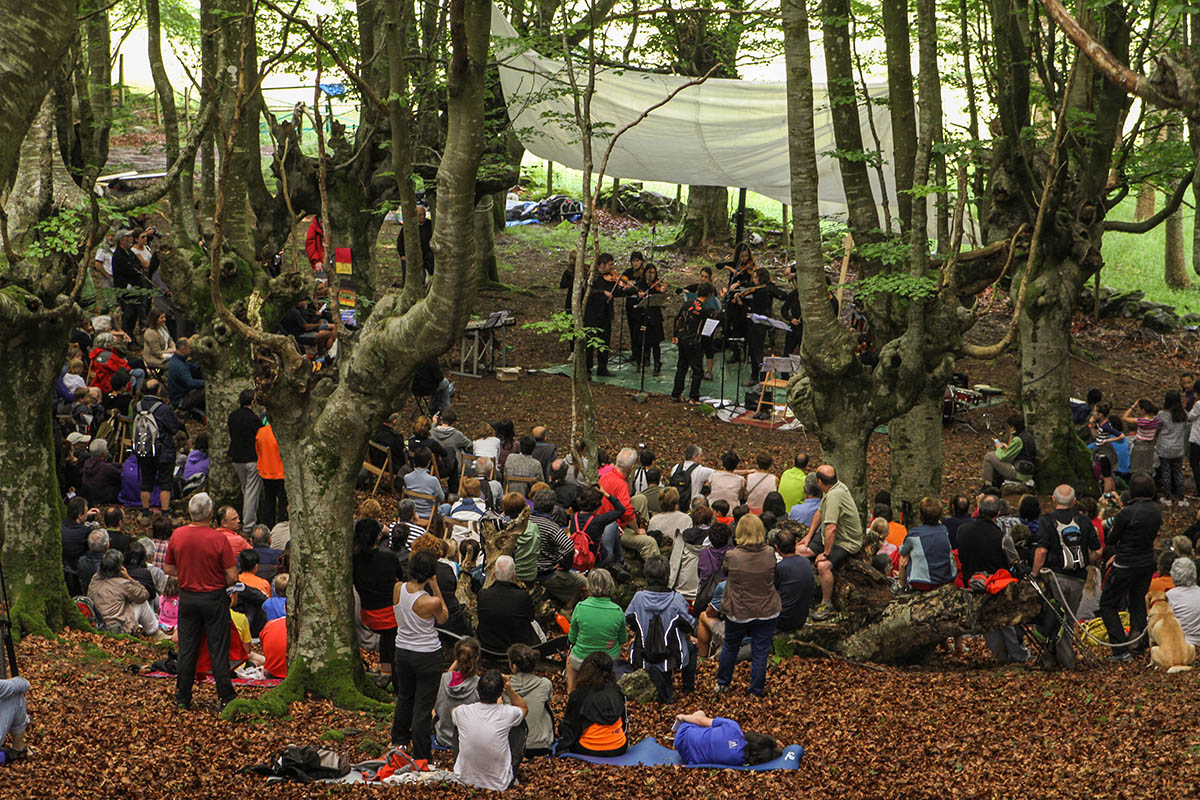
Argazkia: Tolosaldeko Ataria
The celebrations continue leading to the acts resulting from the oldest traditions of Tolosa. The figure of San Juan that presides over the Parish of Santa María is festooned with red carnations, where just below, the most representative bonfire will be lit on the eve of San Juan on the 23 June.
At 10 pm, shortly after night falls, the wood collected a year beforehand will be set alight. Those attending can jump over the fire, enjoy the dance performance of the group Udaberri and the Tolosa Music Band performing the Zortziko (Basque dance) of San Juan, and also the Hodeiertz choir. The sound of the bells will also have a presence, and once again this year, the Garikano brothers will be responsible for them.
Argazkia: @gerardoalsu
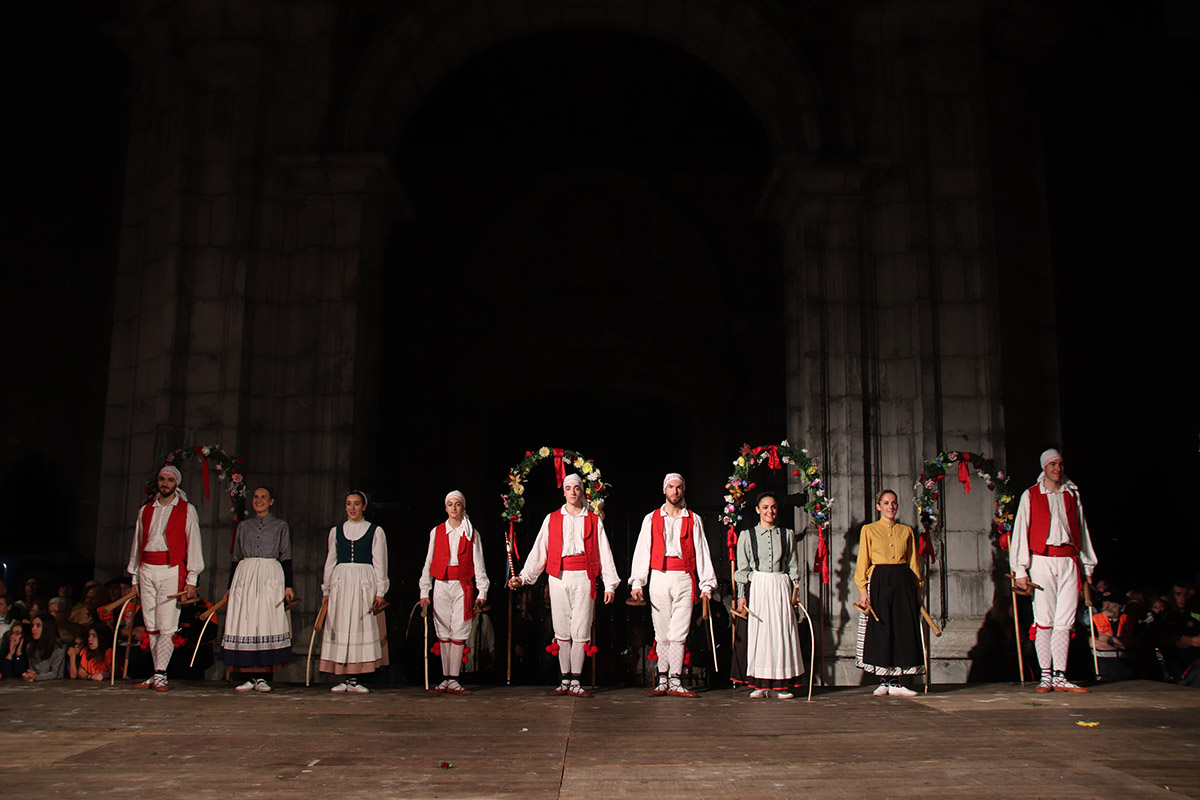
Argazkia: Tolosaldeko Ataria
According to different beliefs, the jump over the bonfire of San Juan has several meanings: it is used to purify, scare away evil spirits, have good luck during the year, or attract good harvests. Regardless of each person’s beliefs, it is undoubtedly an exciting and very eagerly-awaited moment during the year.
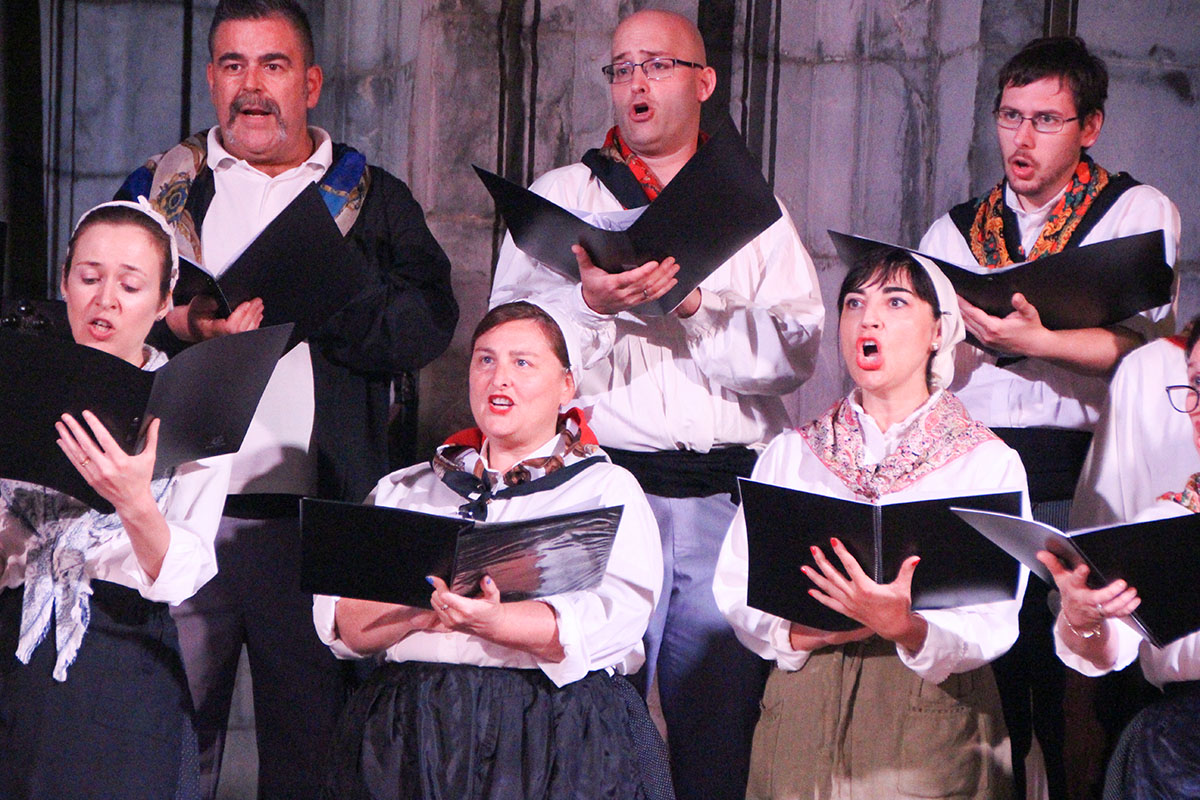
Argazkia: Tolosaldeko Ataria
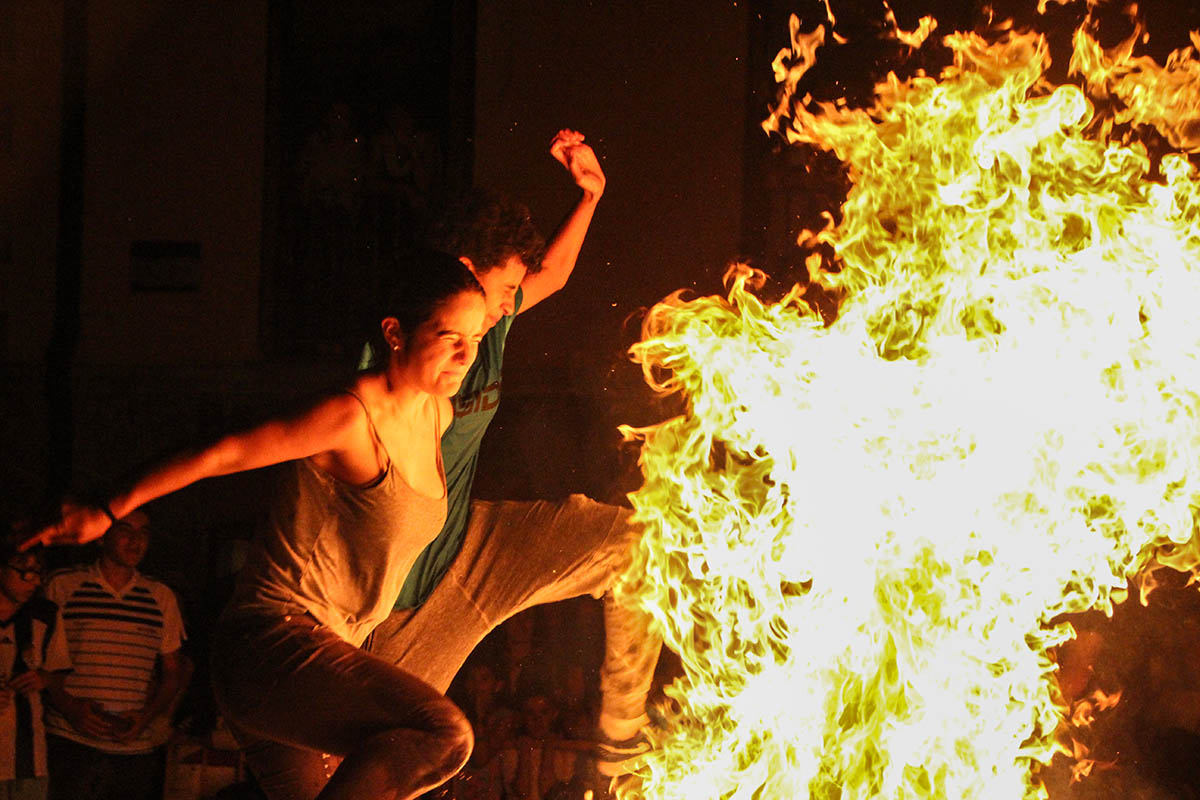
Argazkia: Tolosaldeko Ataria
.jpg)
Argazkia: Tolosaldeko Ataria
The shortest night of the year is made even shorter with the nerves and excitement for the day of San Juan. At 5.30 am in the morning, the Bordon Dantzaris dancers are already at work collecting branches of ash still moist with morning dew, before then placing them along the streets of the Old Quarter. According to tradition, these branches will protect the harvests.
The txistularis (Basque flute players) take charge of beginning to gradually awaken the town, and first they do so by heading to the homes of the mayor and councillors of the Council of Tolosa. A special mention is also deserved by the custom of the recently deceased Joxe Mari Gorrotxategi, who for many years came to the Town Hall Square to give a bouquet of flowers to the mayor.
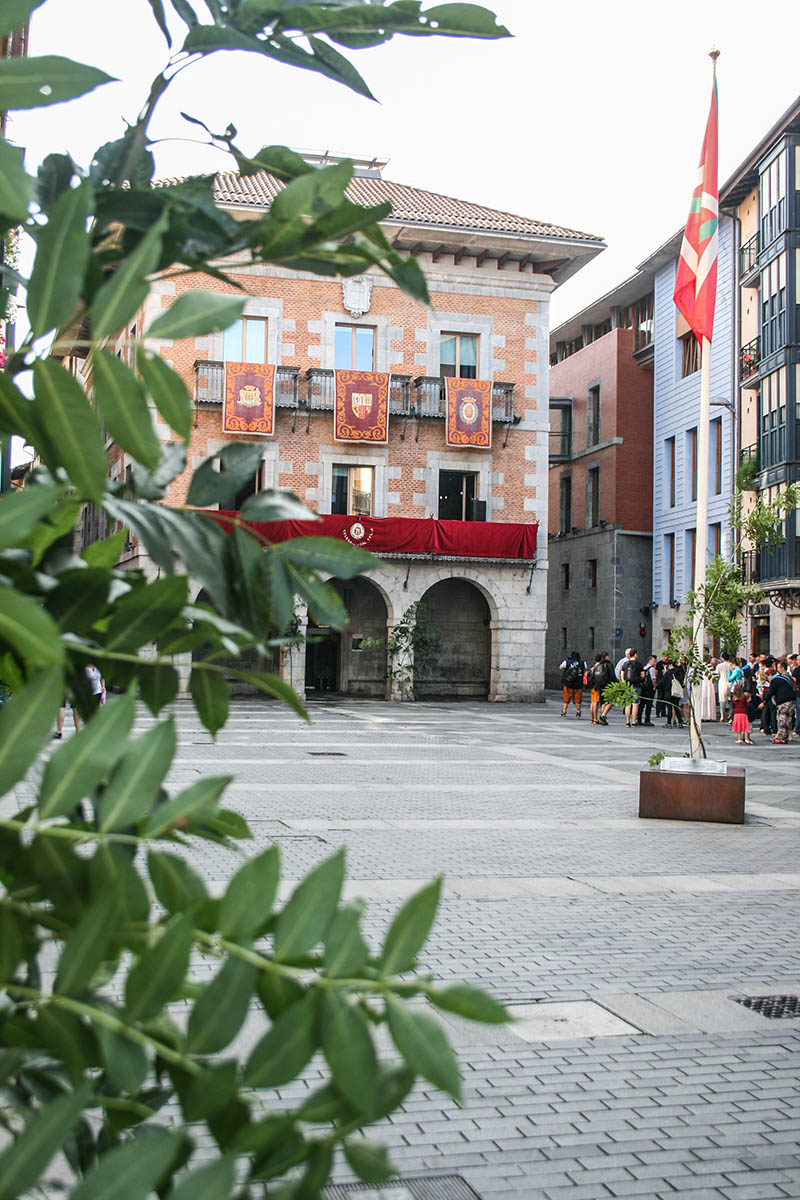
Suddenly, the noise of the drum and txilibitus (Basque flutes) begins; it comes from the different companies of riflemen, who begin to parade with their rifle over their shoulder. It is a re-enactment of the battle of Beotibar, between the people of Gipuzkoa and Navarre; but nowadays the festive spirit prevails. Hundreds of participants dressed in colourful costumes discharge salvos as the procession goes by, along with the municipal band of txistularis (Basque flute players), the male and female bordon-dantzaris performers, the municipal corporation the Municipal Music Band of Tolosa and the txistularis.
During the parade, there are several emotive moments, such as the departure of the steps from High Mass in Plaza Santa María, where in a moment the sound of the bells of the bordon-dantzaris in their first Zortiko joins the melodies of the Band and the txistularis (Basque flute players) along with the shots of the different companies of riflemen. The troupe of giants in Tolosa has also been one of the major attractions in recent years.
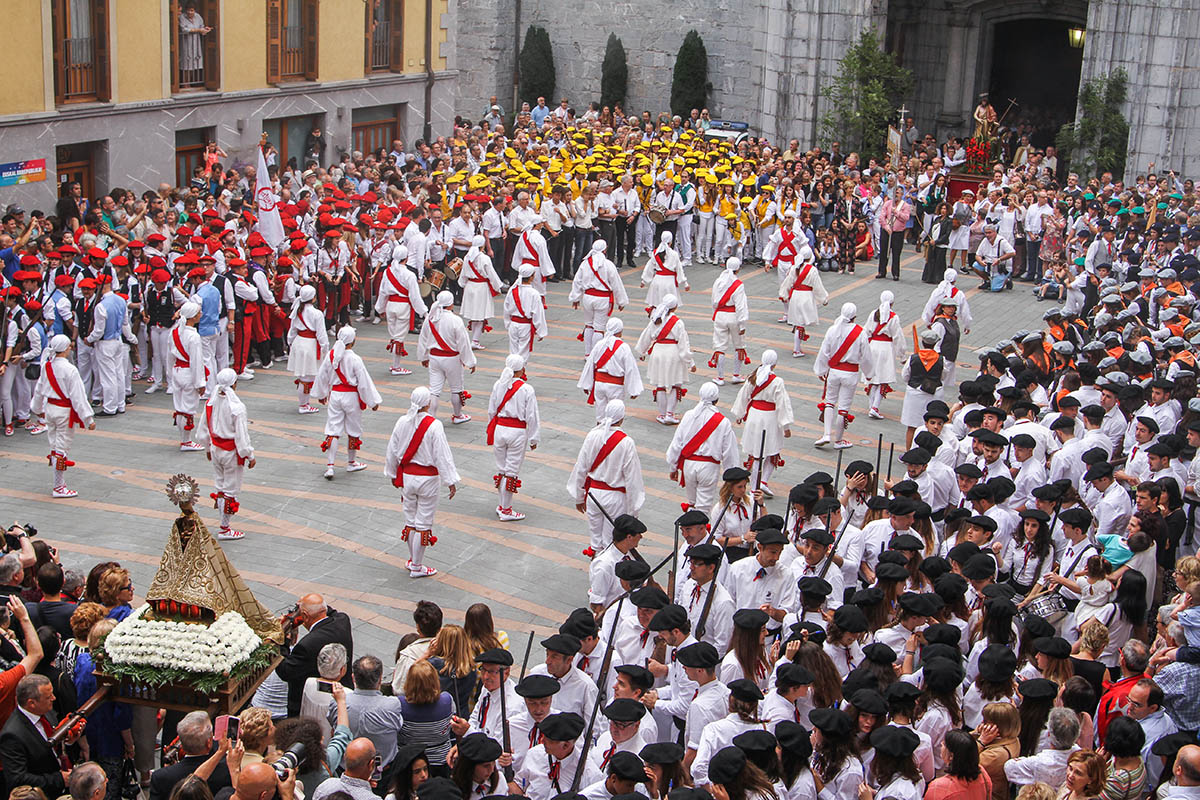
Argazkia: Tolosaldeko Ataria
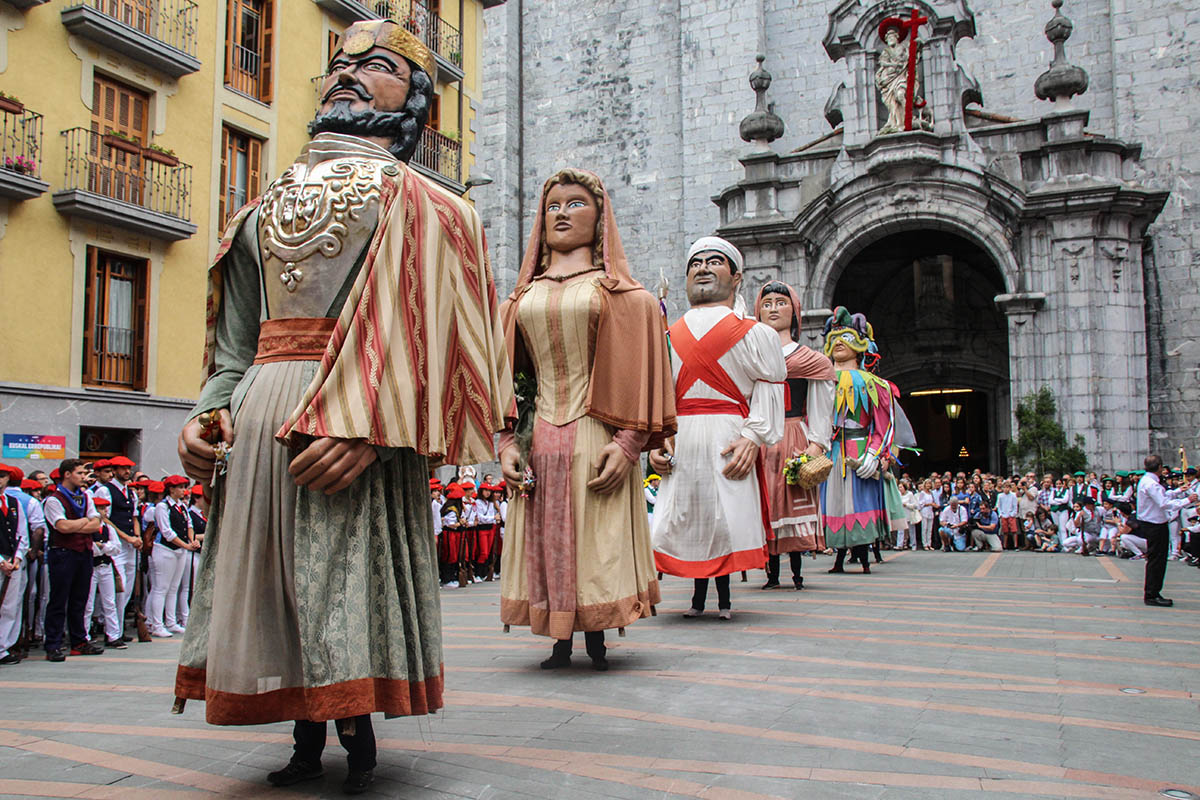
Argazkia: Tolosaldeko Ataria
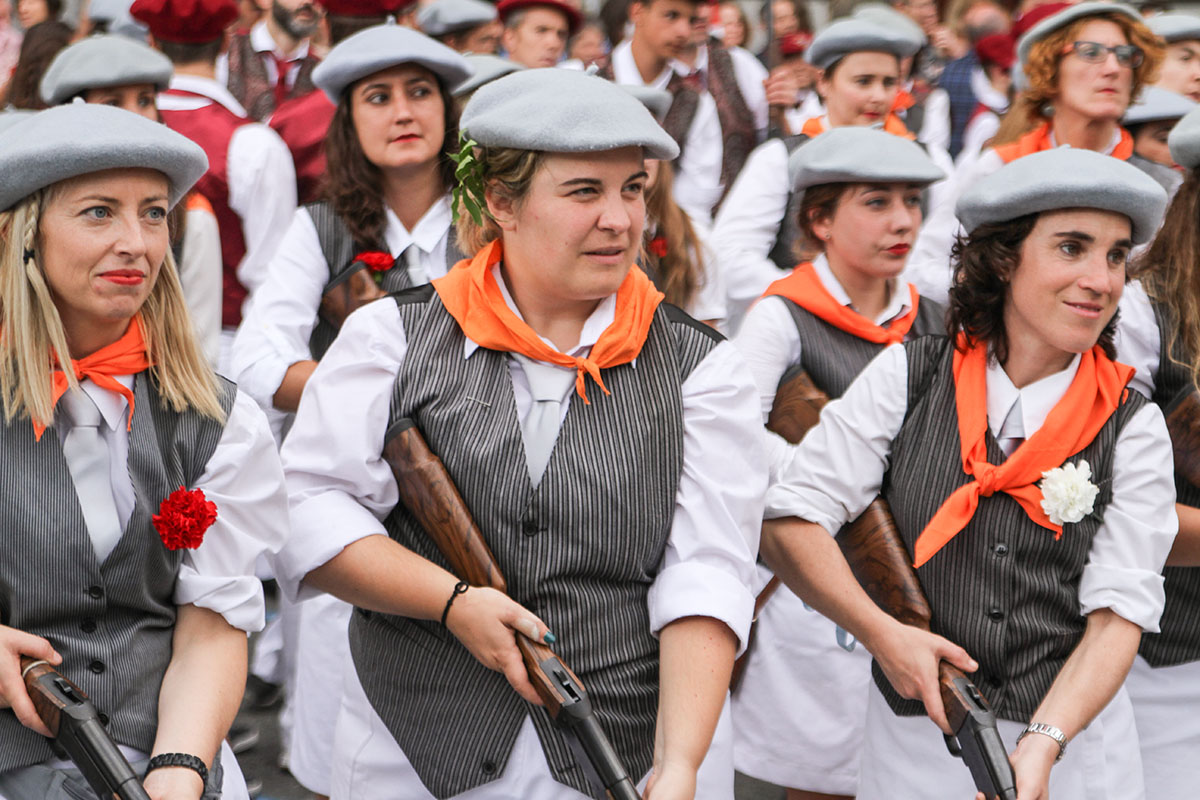
Argazkia: Tolosaldeko Ataria
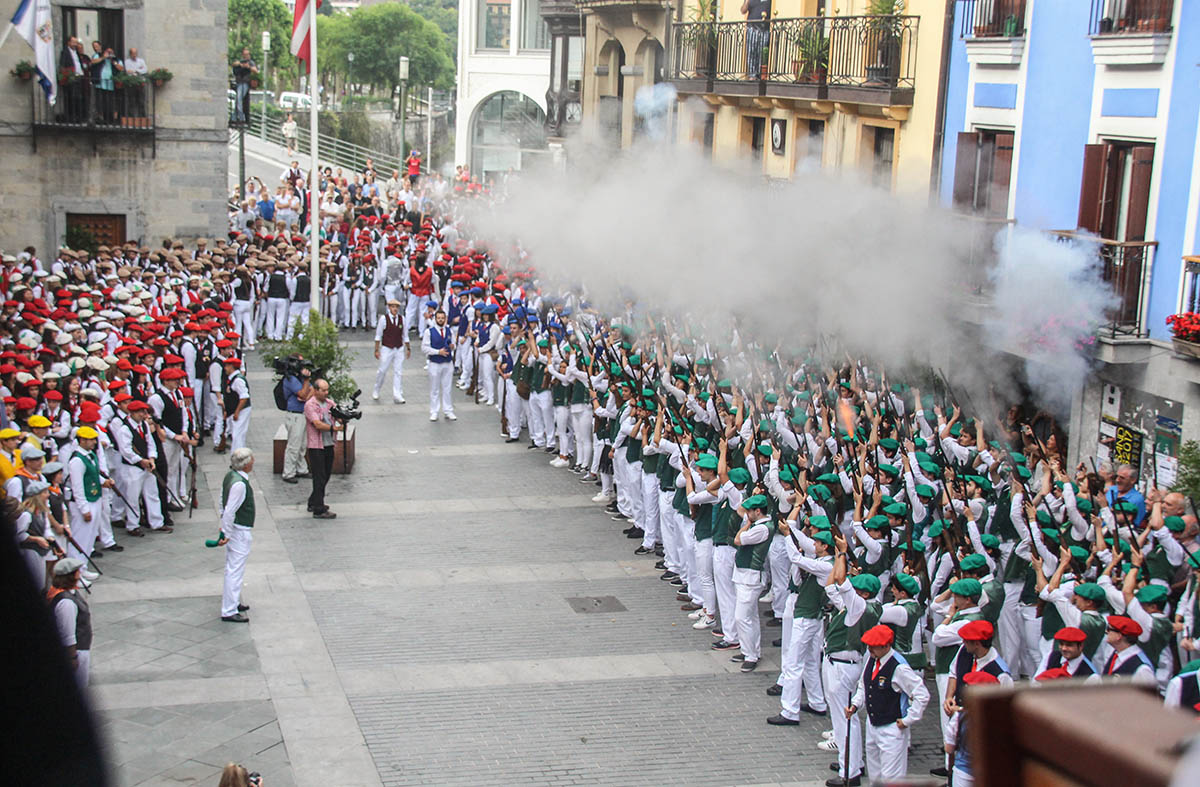
Argazkia: Tolosaldeko Ataria
Another of the most special places that is visited during the parade is the church of San Juan in Arramele, the oldest in Tolosa. Mass here is held on the 23 and 24, in the afternoon, Vespers and Compline, and there will be the chance to once again see the Corporation with their elegant outfits. Curiously, the youngest councillor carries the “trustee”: a sword covered in carnations and a white handkerchief with the coat of arms of Tolosa, representing the battle of Beotibar. Upon leaving, the famous carnations that decorate the San Juans are distributed: to the figure of San Juan, the hermitage of Arramele and the parish of Santa María.
In the afternoon, another of the major features is the Bordon-Dantza dance. Also, the dantzaris (Basque dancers) dance the Zortziko in the morning, the dance they are named after is the one they dance in the afternoon. According to some sources, this dance was performed for the first time as a celebration after winning the battle of Beotibar, but this cannot be claimed for certain.
The display on the day of San Juan ends in Plaza del Triángulo where the mayor and the corporation of the Council dance for the entire town. Here, the last salvos of the day will be discharged, presided over by the captain general and the mayor, just like in the morning at Plaza Justicia.
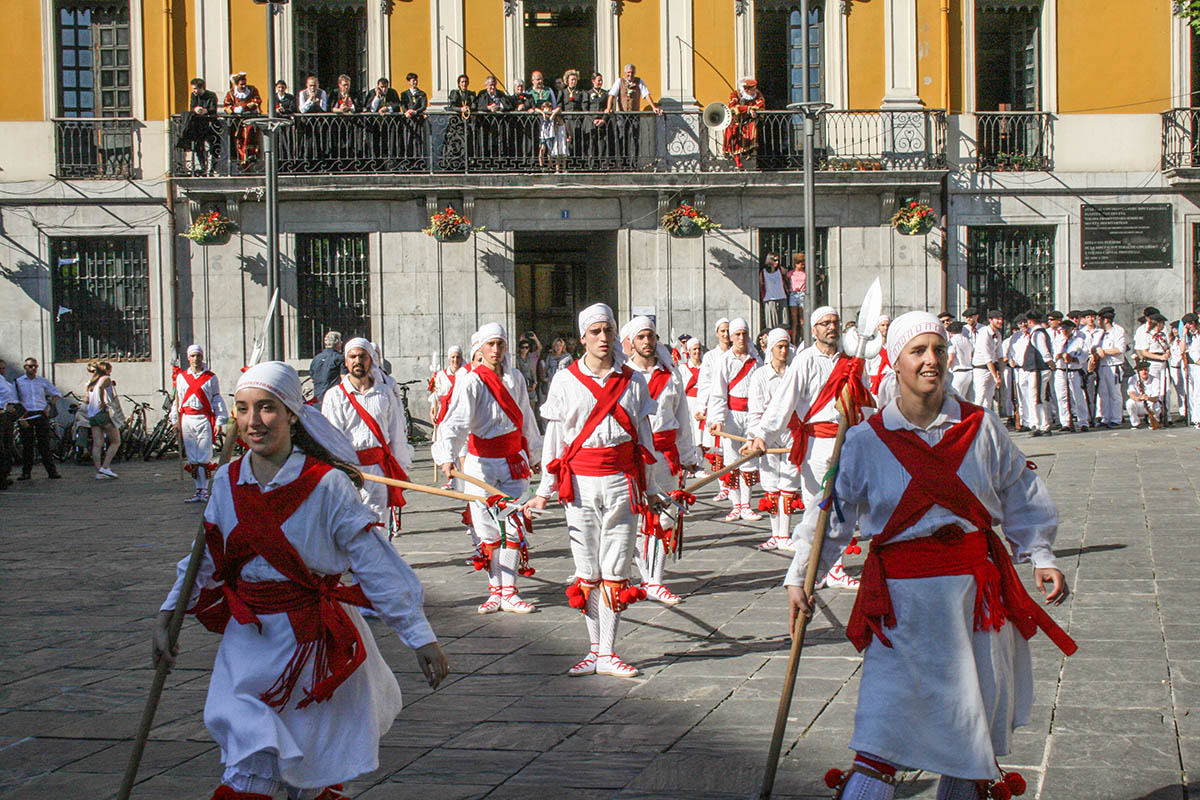
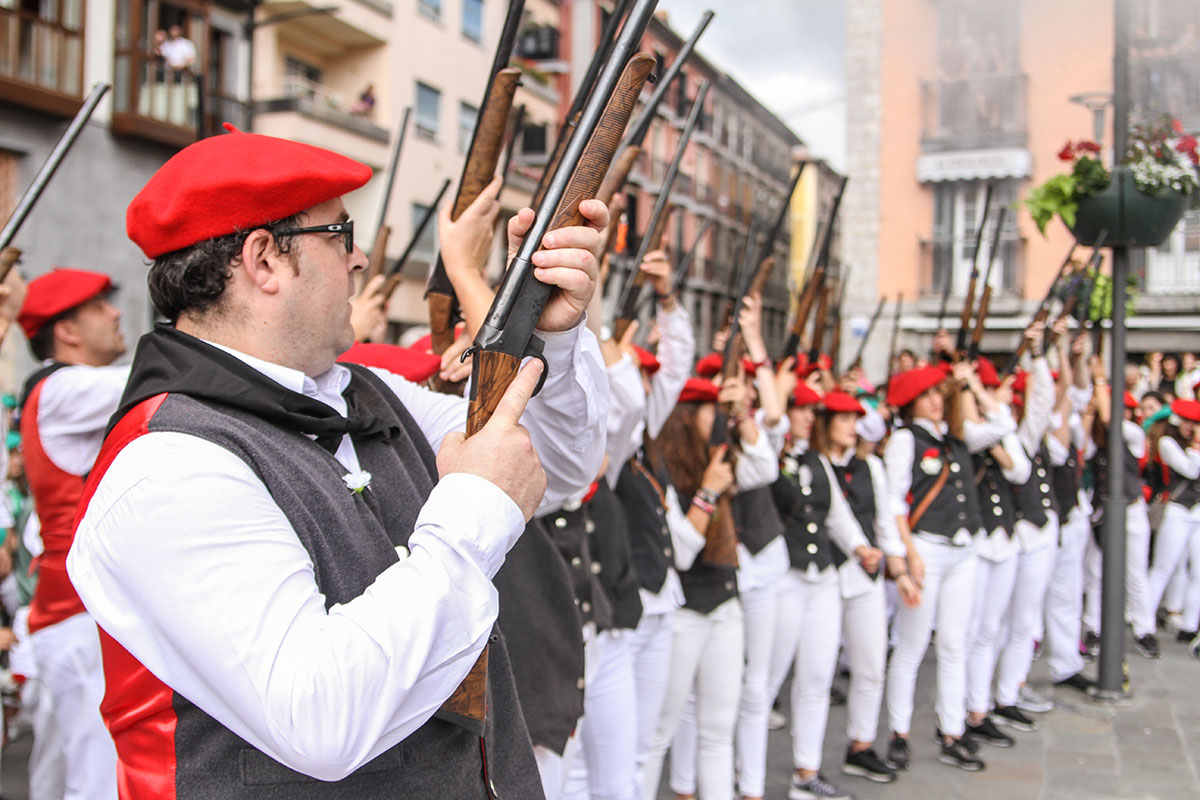
Argazkia: Tolosaldeko Ataria
While the riflemen end their parade, the male and female bordon-dantzaris performers have another moment in the limelight in the Prado Grande, where they dance the soka-dantza and the Aurresku: a challenge between the aurresku and the atzesku (who begin and end the soka-dantza). They take people out of the crowd to dance and pay a modest tribute to them.
There are a few final shots to bid farewell to the aroma of gunpowder until next year. However, a collection of moments, aromas and sounds remain in people´s memories for a long time.
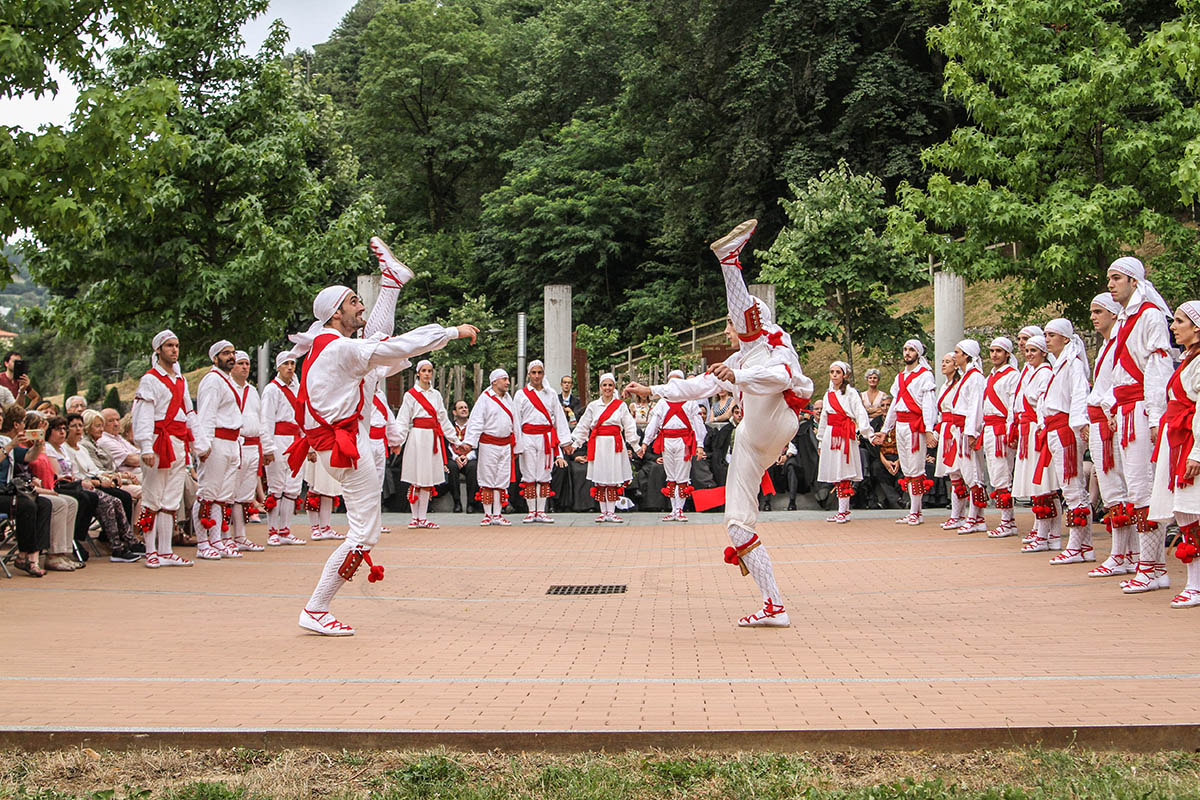
Argazkia: Tolosaldeko Ataria
Programming:




